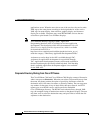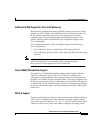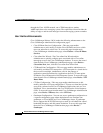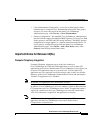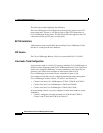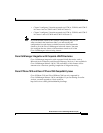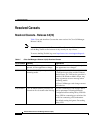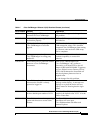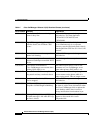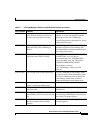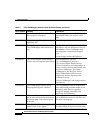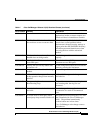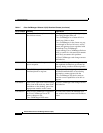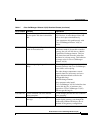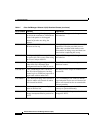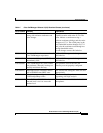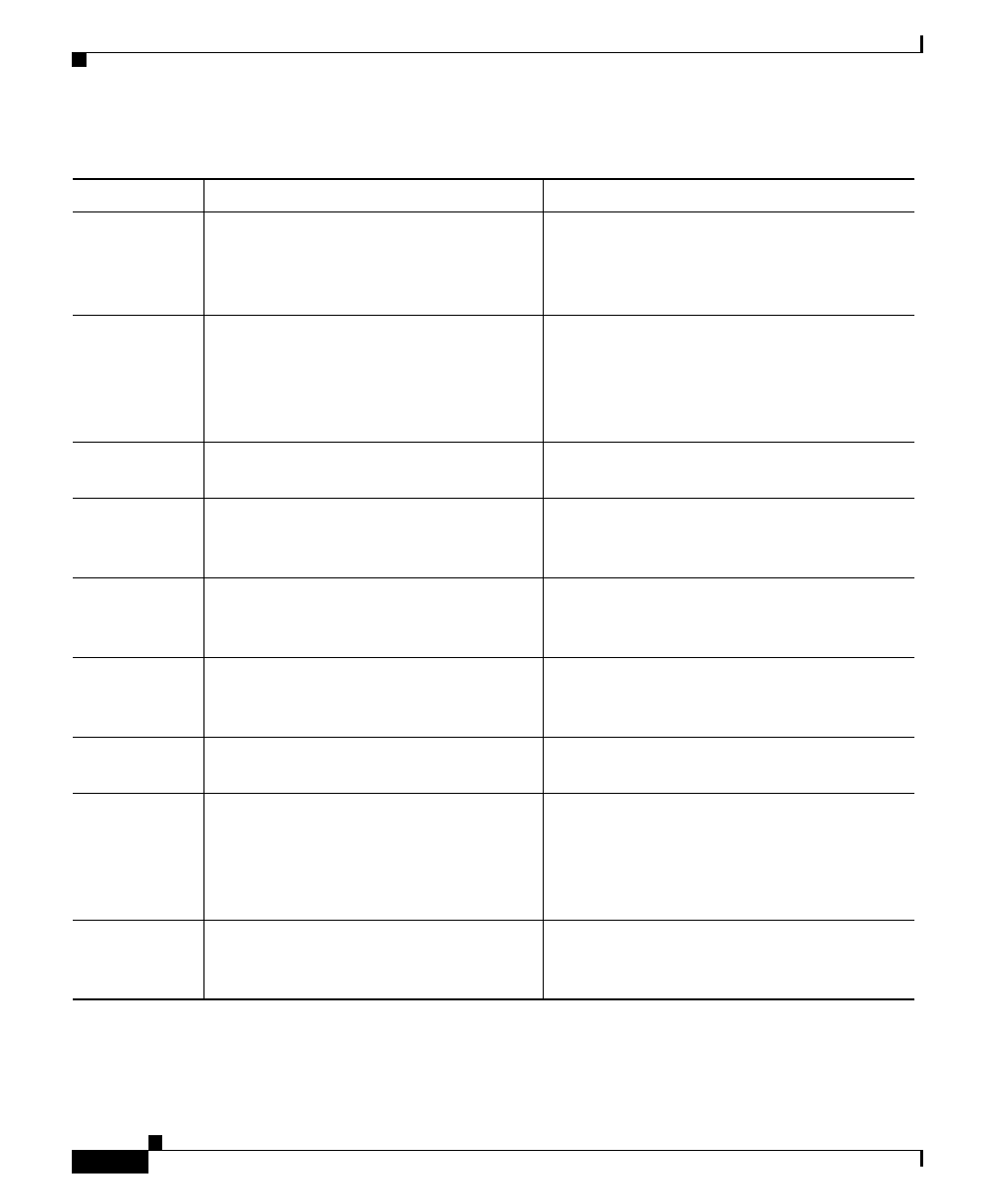
Resolved Caveats
22
Release Notes for Cisco CallManager Release 3.0(10)
78-13493-02
CSCdt42403 User loses a call after transferring
toward a busy line.
A Cisco CallManager code change corrects
this behavior. This item duplicates
CSCdt45632, CSCdt82239, and
CSCdr58998.
CSCdt47805 High CPU usage during directory
searches from Cisco IP Phone 7960
occurs.
This only occurred when 3-4 phones were
set to simultaneously do a corporate
directory search with blank search criteria
that the publisher CPU hits 95+% for 10-20
seconds.
CSCdt46334 Bandwidth does not release to pool after
normal call clearing.
A Cisco CallManager code change corrects
this behavior.
CSCdt49472 User cannot assign an all-numeric
pattern to Gatekeeper-controlled H.225
device.
A code change allows entry of numeric
patterns.
CSCdt51077 User cannot use hostname as
Cisco CallManager server name when
primary DNS suffix is set.
The software now allows a user to use
hostname as Cisco CallManager server
name when primary DNS suffix is set.
CSCdt59773 Cisco IP Phone 7960 is susceptible to a
ping attack and may crash and reboot.
This occurred when scrolling through
various menus on the phone while it is
under a ping attack. This no longer occurs.
CSCdt62462 Synchronous Data Link (SDL) router
service stopped.
A Cisco CallManager code change corrects
this behavior.
CSCdt65935 CallForward SDL update does not work
(SsapiPtr->SsDbChangeFwdInfoReq).
A Cisco CallManager code change puts in
an alarm to collect more information when
the Cisco CallManager fails to update the
local database tables when it receives
change notification from database layer.
CSCdt66312 Message Waiting Indicator (MWI) stays
off when message is left while SP is up,
but line is closed.
A newer version of Cisco Unity TSP
appears to have made this caveat
unreproducible.
Table 2 Cisco CallManager Release 3.0(10) Resolved Caveats (continued)
DDTS Number Summary Explanation



